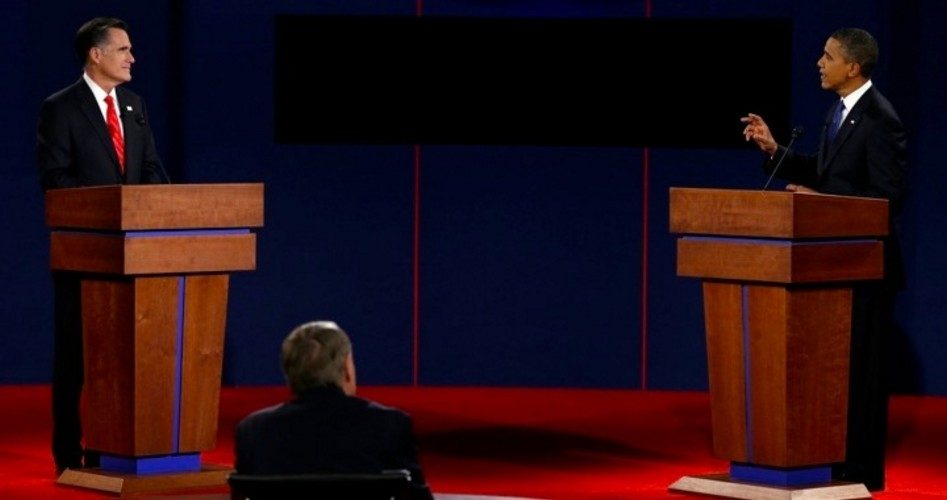
The first presidential debate of the 2012 post-primary election season revealed that both Democratic incumbent President Obama and Republican challenger Mitt Romney, a former governor of Massachusetts, would increase the national budget deficit more than advertised.
Both candidates claim to have put forward tax and spending plans that would bring the federal budget closer to balance. However, according to the independent analysis of the Congressional Budget Office, both candidates’ plans would actually increase the $1 trillion deficits the federal government is expected to run next year.
President Obama criticized Governor Romney’s tax proposal, charging that he would increase deficits through a “$5 trillion tax cut” and a $2 trillion increase in military spending. “It’s math,” Obama charged, echoing the words of former President Bill Clinton at the Democratic National Convention. “It’s arithmetic.”
But the math applied by Obama was based on Romney’s proposed cumulative tax cuts and military spending increases over the next 10 years. The 10-year figures are deliberately exaggerated figures since much of the money involved would be in the final few years of the 10-year period, when Romney wouldn’t even be eligible to serve as president even if elected to two terms. Romney countered that “I’m not looking for a $5 trillion tax cut. What I’ve said is I would not put in place a tax cut that adds to the deficit.” Romney outlined five goals he’d seek if elected as president, the fourth of which is to “get us to a balanced budget.”
Despite Obama’s deceptive exaggerations, Romney’s proposals would not only fail to get the federal government to a balanced budget, it would increase the federal deficit immensely. Romney has failed to propose spending cuts that would match his substantial tax cut proposal (which includes cutting income tax rates 20 percent across the board) and proposed increases in military spending (some $200 billion in 2016 alone).
But Obama’s deficit “arithmetic” didn’t add up either. Obama told the debate audience, moderated by PBS’ Jim Lehrer: “When I walked into the Oval Office, I had more than a trillion dollar deficit greeting me. And we know where it came from: Two wars that were paid for on a credit card. Two tax cuts that were not paid for and a whole bunch of programs that were not paid for and a massive economic crisis.”
Obama’s policies have been — as the wars end and the economic recovery began — not to pay for those programs but instead to continue $1 trillion-plus annual budget deficits through his first term. The Congressional Budget Office noted that the federal government racked up another $1.1 trillion deficit in 2012 and projects it will rack up still another trillion dollar deficit in 2013. So much for Obama’s criticism of the (legitimate) profligacy of his GOP predecessors.
Obama told the debate audience that “I put forward a specific $4 trillion deficit reduction plan. It’s on a website. You can look at all the numbers.” But Obama’s numbers didn’t square with arithmetic reality. Despite the massive tax increases of ObamaCare — Obama would increase the deficit by an additional $3.5 billion over current law (which already includes massive deficits), not cut deficits. According to Politifact.com, “The Congressional Budget Office, the nonpartisan analytic arm of Congress, looked at the president’s 2013 budget and concluded that it would increase the cumulative deficit by $3.5 trillion over its baseline between now and 2022. That greatly undercuts Obama’s argument that he is saving money.”
Photo of former governor Mitt Romney and President Barack Obama at Oct. 3 presidential debate: AP Images
Related article:



